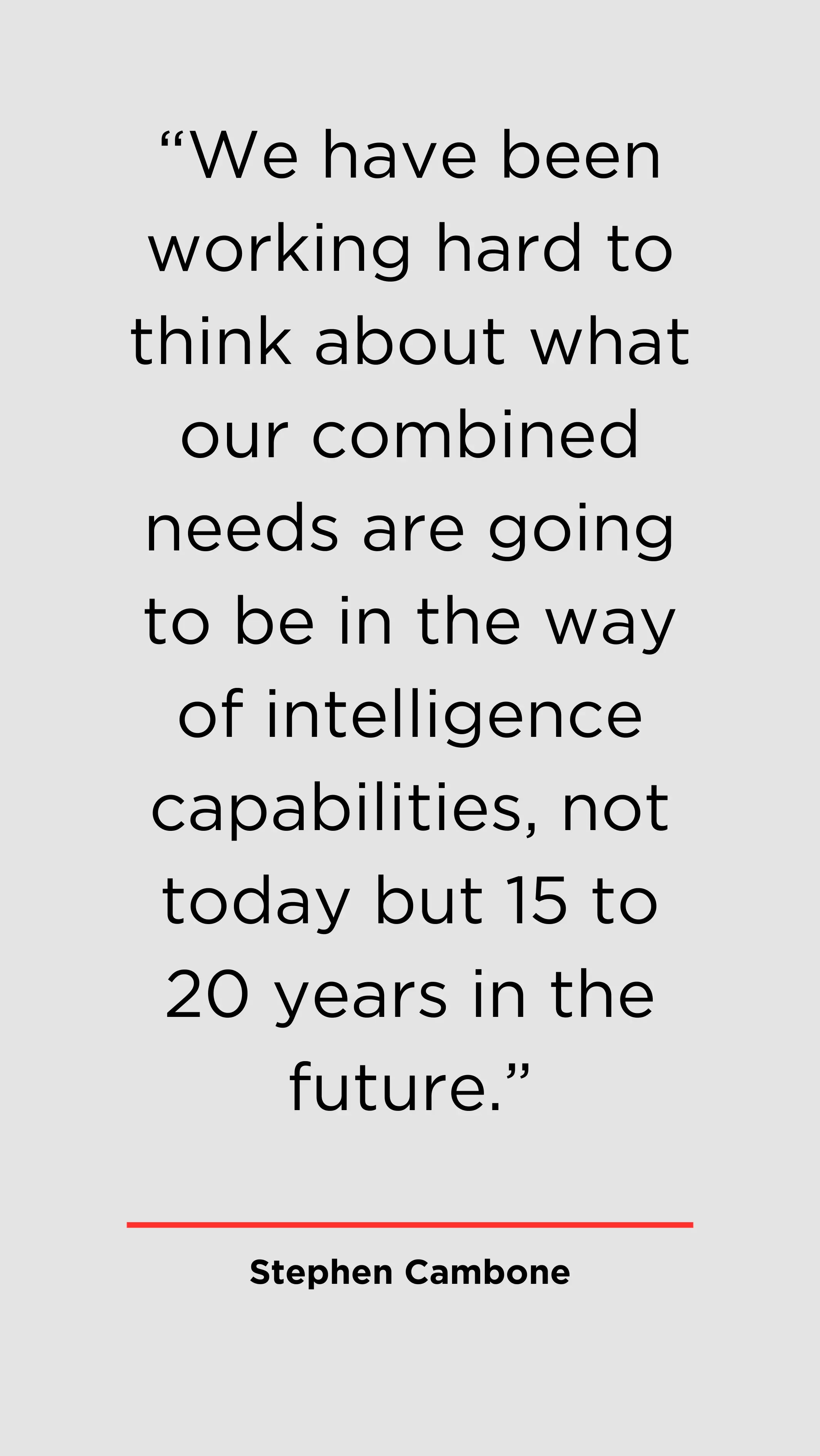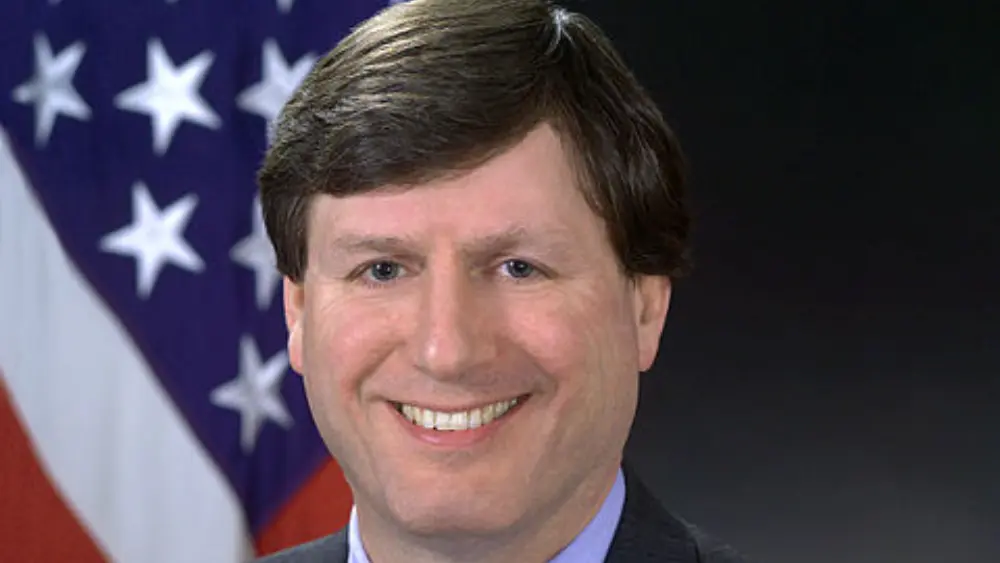Stephen A. Cambone, a distinguished figure in the field of national security and intelligence, served as the first-ever Under Secretary of Defense for Intelligence. Born on June 22, 1952, Cambone’s career spanned the realms of academia, government service, and defense policy.
Early Life and Education
Stephen Cambone’s early life brimmed with a notable fascination for national security and international affairs, passions that would mold his remarkable career. Growing up with an innate curiosity about global dynamics and security matters, he embarked on a path of academic pursuit to further his understanding of these complex subjects. This intellectual journey culminated in his attainment of a doctorate in political science, a significant achievement that equipped him with the knowledge and expertise necessary for a future in the realm of national security.
His dedication to higher education not only underscored his commitment to his chosen field but also provided him with the analytical and critical thinking skills that would prove invaluable throughout his career.
Stephen Cambone: Academic and Research Career
Stephen Cambone’s early career path was characterized by a strong commitment to academia and research within the realm of national security and defense policy. He embarked on a journey that led him to take up positions in prestigious academic institutions and research organizations, positioning himself as a respected scholar in the field. During this phase, Cambone made significant contributions to the study and analysis of critical national security matters, contributing valuable insights that would later inform his policy work.
His academic and research background equipped him with a profound understanding of the complexities of defense and security issues, which proved to be an asset as he transitioned into roles where he could directly influence and shape U.S. national security policy. Stephen Cambone’s formative years in academia and research laid the intellectual groundwork for his subsequent contributions to the field, reflecting his unwavering commitment to advancing the nation’s security interests through rigorous analysis and scholarly inquiry.
Government Service and the Department of Defense
In the early 2000s, Cambone transitioned from academia and research into government service, marking a significant career shift. This shift led to crucial roles in the Department of Defense, where he shaped U.S. national security policies and strategies. His shift to government service showcased his dedication to enhancing national security through academic expertise and tackling real Department of Defense issues.
Within the Department of Defense, Cambone assumed positions of immense responsibility and influence. These roles allowed him to directly contribute to the development and implementation of policies and initiatives aimed at safeguarding the nation. His dedication to public service and deep commitment to national security were evident throughout his career. He worked tirelessly to address the evolving threats and security challenges facing the United States in the 21st century. Stephen Cambone’s transition into government service marked a critical juncture in his career, one that would see him leave an enduring impact on U.S. defense and security policies.
Stephen Cambone: Under Secretary of Defense for Intelligence Appointment
In 2003, Stephen Cambone’s career took a pivotal turn with his appointment as Under Secretary of Defense for Intelligence. This marked a significant new position in the Department of Defense, overseeing and coordinating all intelligence efforts. In this role, Cambone wielded authority, shaping the U.S. military’s intelligence apparatus for efficient and effective national security support.
As Under Secretary of Defense for Intelligence, Cambone operated at the nexus of intelligence, defense policy, and national security strategy. He streamlined intelligence operations, improved information sharing among defense agencies, and strengthened the Department of Defense’s intelligence capabilities. This appointment marked a pivotal juncture, bringing Cambone’s expertise and leadership to the forefront of national defense and security.
Post-9/11 Challenges
In 2003, Cambone became Under Secretary of Defense for Intelligence during the transformative post-9/11 period in U.S. national security. During this era, the U.S. confronted unique security challenges, adapting rapidly to evolving global terrorism threats and emerging adversaries. Cambone’s leadership was crucial amid complex intelligence and defense dynamics, marked by security concerns, geopolitical shifts, and safeguarding against attacks.
The post-9/11 era required innovation, agility, and commitment to enhance intelligence capabilities against evolving threats. Amid a changing security landscape, his leadership helped redefine the nation’s intelligence capabilities and left a significant legacy within U.S. defense efforts.
Stephen Cambone: Defense Transformation and Intelligence Integration
Stephen Cambone’s leadership as Under Secretary of Defense for Intelligence brought sweeping transformation to the Department of Defense. His tenure marked a firm commitment to enhance intelligence integration and collaboration among diverse U.S. military branches. Cambone initiated vital reforms for coordinated intelligence, streamlining operations, and boosting information sharing among defense agencies. It aimed to break bureaucratic silos, creating a responsive intelligence apparatus for 21st-century security challenges, fostering agility and adaptability.
Cambone promoted integration in the Department of Defense, leading to improved coordination, communication, and cooperation among intelligence agencies. These changes crucially enhanced national defense capabilities, ensuring vital intelligence sharing throughout the military and boosting U.S. armed forces’ readiness. His legacy emphasizes intelligence integration’s critical role in strengthening national security and safeguarding interests in a rapidly changing world.
Intelligence Oversight and Coordination
As Under Secretary of Defense for Intelligence, Stephen Cambone played a central role in intelligence coordination, oversight, and communication. He promoted seamless coordination among Defense intelligence agencies, ensuring efficient sharing of critical intelligence for effective operations. Coordination was crucial for understanding security threats and enabling informed decisions at the highest defense leadership levels.
His role as an intelligence oversight steward was vital for accountability and responsible operations within the Department of Defense. Cambone’s dedication to intelligence coordination and oversight underscored his commitment to safeguarding national security and addressing global challenges.

Stephen Cambone: Legacy and Contributions
Stephen Cambone’s pivotal contributions during his tenure as the Under Secretary of Defense for Intelligence define his legacy. Under his leadership, U.S. agencies advanced capabilities, enhancing global coordination, vital for addressing 21st-century challenges. His commitment improved defense by integrating intelligence, fostering collaboration, and enabling the seamless sharing of critical information among military branches. This transformation not only improved the effectiveness of intelligence operations but also enhanced the readiness of the U.S. armed forces.
Additionally, Cambone’s dedication to intelligence oversight and accountability underscored the principles of transparency and legality in intelligence activities. Stephen Cambone’s contributions endure, resonating in intelligence and defense. This leaves a lasting impact on national security in an evolving world.











